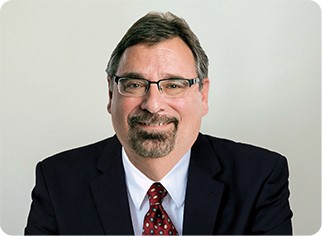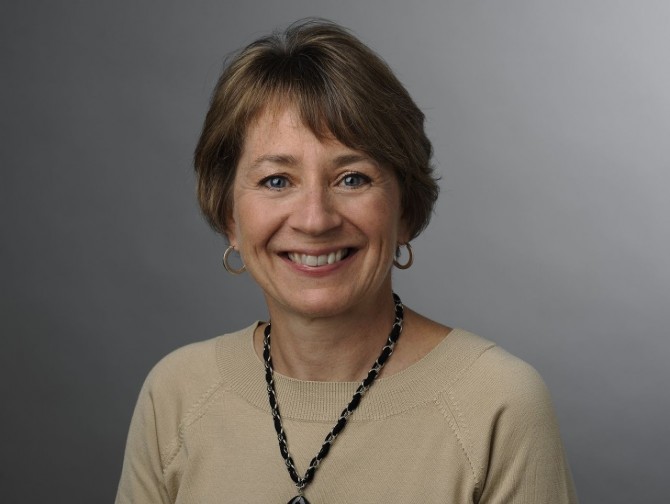Alumni involvement in startup incubators sparks growth
By Kaitlin Provost
When Frank DeCosta, Ph.D. ’85, thinks back to when he was a student, he reflects on how ignorant he was about intellectual property law.
Now a lawyer with more than 20 years of experience in intellectual property, DeCosta volunteers at Cornell’s Praxis Center for Venture Development to make sure faculty and student entrepreneurs are more knowledgeable than he had been.
“Ignorance can cost companies a lot of money when it comes to IP rights,” DeCosta said. “I’m focused on doing what I can to fill the void of a lack of knowledge about IP – an important part of the toolkit for any entrepreneur.”
DeCosta is just one of many alumni who play an important role in Cornell’s business incubators and accelerators. Students and faculty working to build businesses through these centers rely on the expertise of alumni to help grow their ideas into functional and successful businesses.
“Alumni are uniquely qualified to give back,” DeCosta said. “It’s extremely rewarding. It challenges me to think about things in new and different ways.”
DeCosta offers a unique perspective to these teams and aims to educate students on how IP law can make or break a business. He has worked with a diverse array of startup teams – from companies aimed at developing a more effective way to pick apples, to robotics startups, to companies developing optical wireless integrated circuits.
“The nice thing about the center is it really is an ecosystem,” DeCosta said, noting that many of the teams involved in the center help each other and sometimes find unique collaborations that spawn new ideas and ventures. “One thing that hasn’t surprised me is the quality of the folks involved in these programs. It’s not just the resumes – it’s the diversity of experience the folks have,” he adds.
William Rhodes ’75, an executive in residence and advisory council member with the McGovern Center, said mentoring entrepreneurs in business incubators creates growth not only for the startups and companies involved, but for the university as a whole.
“A university prioritizing entrepreneurship and innovation – that is highly thought of,” Rhodes said. “I want to see the center be successful in terms of bringing in entrepreneurs that deliver important products to the marketplace. Our faculty and students see it as an opportunity, and it could attract new faculty, too.”
Beckie Robertson ’82, also an executive in residence and advisory council member with the McGovern Center as well as a Cornell trustee, added that she would love to see businesses that start off in the McGovern Center and other campus incubators thrive in the region.
“I would love to see the ecosystem within the Ithaca area continue to grow and mature,” she said, “as they leave [the centers] and start to raise significant capital and develop as stand-alone companies.”
Rhodes and Robertson both help startups in the McGovern Center create realistic business plans – a key to the success of a business venture. Both also help companies network, leveraging connections made through their careers to join potential investors with startups that align with their priorities and visions. Robertson said she hopes alumni can help teams in this way to “accelerate their learning through [our] experiences.”
Offering support to these startup teams, Rhodes said, can help them go on to “create the next Apple or Amazon or Pfizer. There are pathways to do that within the Cornell ecosystem.”
Rhodes noted that seeing the passion students and faculty bring to their projects has been rewarding, and he enjoys helping them identify potential barriers to their success, and how to move beyond them. “They are indefatigable,” he said of the team members he’s worked with. “It never once dawns on them that they won’t be able to accomplish their goals.”
The beauty of Cornell’s entrepreneurship centers is that they are interdisciplinary,” DeCosta added. “Nowhere else in the world do you have a university built on cross-collaboration. These centers really highlight the best of the university.”
Robertson agreed, saying she’s consistently impressed by “the creativity, the innovation, the resourcefulness I see. Their intelligence and passion are always a source of inspiration.”
Rhodes, Robertson and DeCosta all encourage other alumni to get involved in one of the many business incubators and accelerators on campus. “If you have something to offer, reach out,” Rhodes said. “There are never too many mentors.”
“The impact you can have is significant,” Robertson added, “and there are many ways to get involved. The entrepreneurship efforts on campus are huge, and the energy is just infectious. You will get so much more out of it than you give.”
This story originally appeared in the fall 2020 issue of Ezra magazine.
Media Contact
Get Cornell news delivered right to your inbox.
Subscribe



